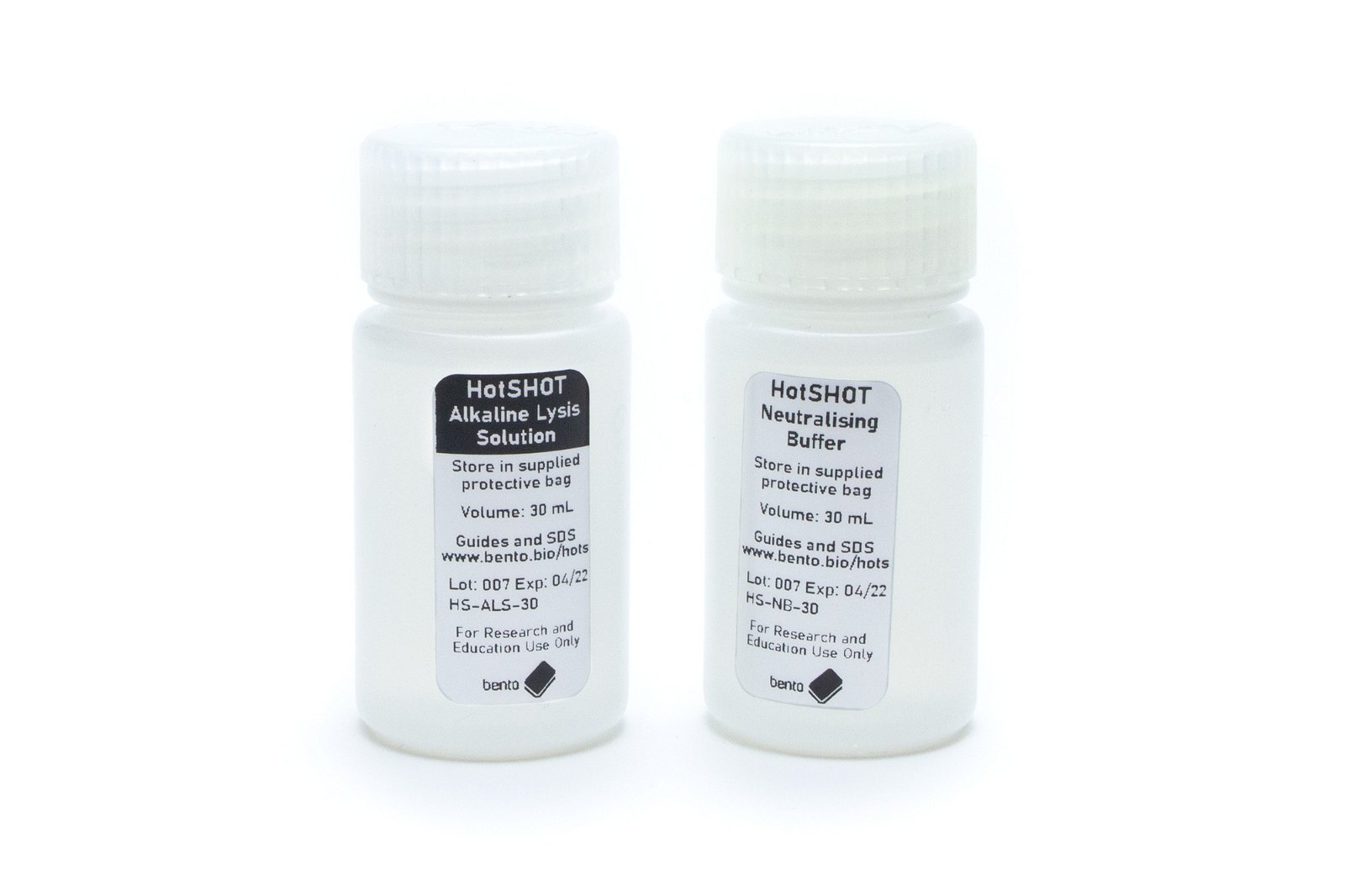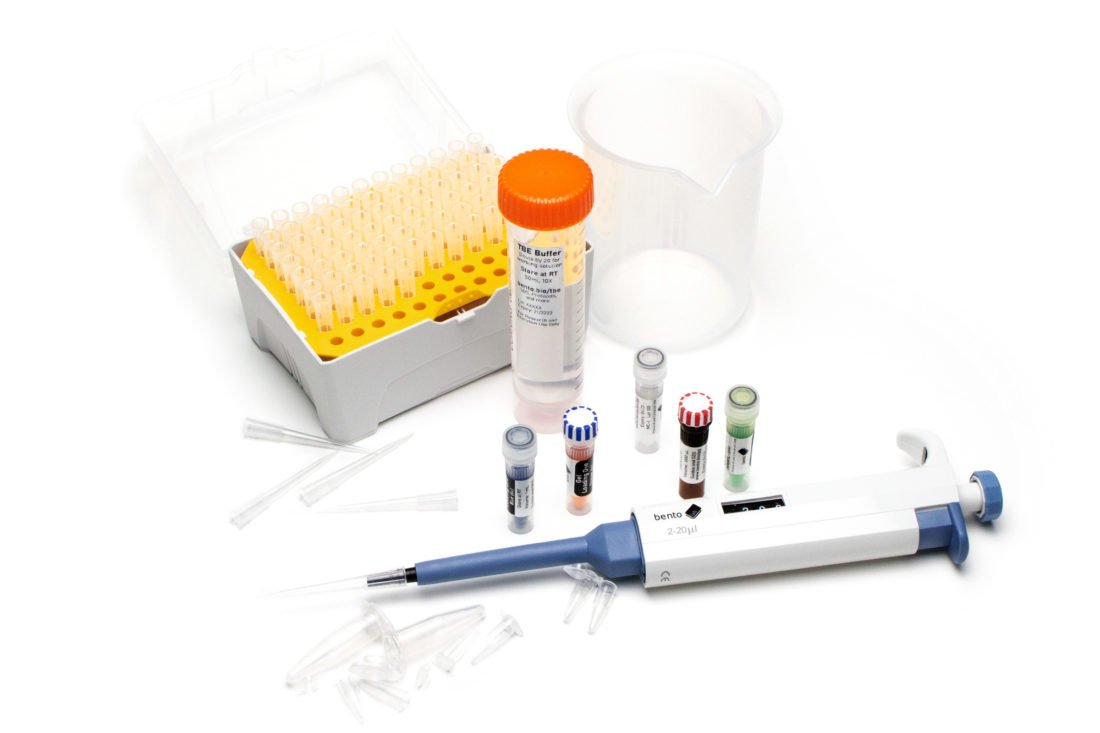Extraction of PCR-grade DNA from a wide range of sample types, for genotyping, PCR-based assays, sequencing, and DNA barcoding.
The HotSHOT alkaline lysis method is most often used for extracting DNA from mammal, bird, and fish tissues, but have also been used on a wide range of tissues from different taxonomic groups, ranging from invertebrates, animal parasites, and parasite blood meals; zooplanktonic eggs; pollen, and young leaves; and fungal pathogens in plant tissues.
The HotSHOT alkaline lysis method is not suitable for applications requiring extraction of large quantities of high quality unfragmented DNA. Electrophoresis gels of extracted genomic DNA are likely to be blank, or to show a faint smear of fragmented DNA and RNA, due to the small quantities of DNA extracted. However, this will not impact PCR results.
Read here to find out more about whether the HotSHOT DNA extraction method could suit your project needs.
Recommended Usage
Add 75 µL of Alkaline Lysis Solution to 1-2 mm3 of a sample in a 0.2 mL PCR tube, and incubate at 95 ºC for 30 minutes. Allow to cool and then add 75 µL of Neutralising Buffer.
Use 1–5 µl of DNA extract as a template per 20 µl PCR reaction, or for difficult tissues (for example plant or fungal tissue, feathers, blood) first dilute 10x–100x in sterile distilled or PCR grade water to dilute PCR inhibitors. Optimal dilutions for a given tissue type can be established in the first instance by testing a range of dilutions.
Components
Alkaline Lysis Solution (25 mM NaOH, pH 12)
Neutralising Buffer (100 mM Tris-HCl, 0.5 mM EDTA, pH 8)
Storage & Stability
Store sealed and in the original bag at room temperature.
Exposure of the Alkaline Lysis Solution to air will gradually decrease the pH and effectiveness of this reagent over time. Storage for up to 6 months at room temperature should have minimal detrimental effects provided the containers and bags are properly sealed.
For longer term storage, test the pH levels before use to check the pH of the Alkaline Lysis Solution.
Shipping conditions
Shipped at room temperature.





